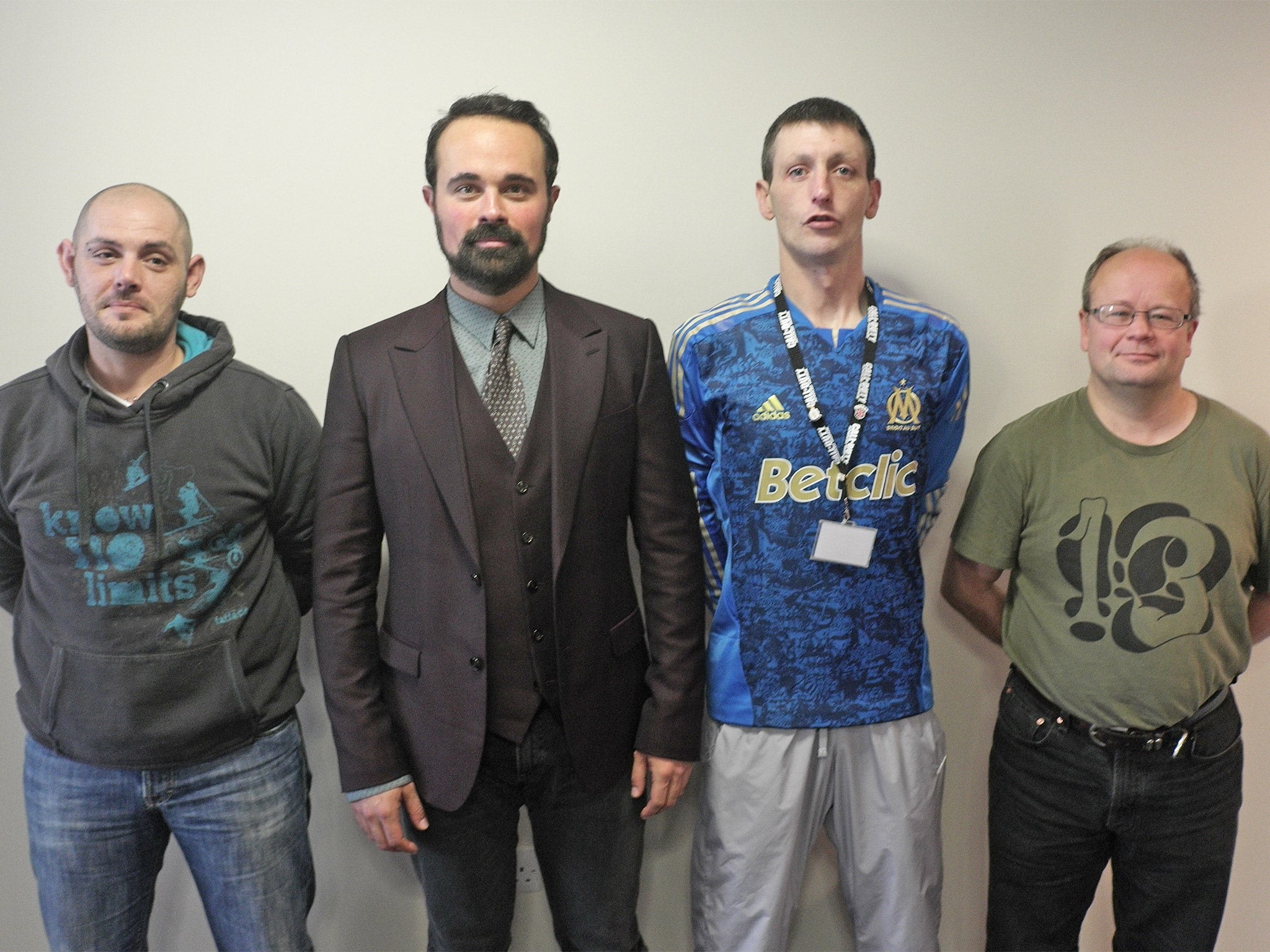Homeless Veterans appeal: Haven of peace offers the damaged a way back to normality
Those who have lost their confidence – and sometimes their family – need care and support. Your contributions can help them


In the living area at Belrock House just outside Glasgow, tea, coffee, biscuits, and – of course – Irn-Bru are all laid out. There is still a smell of new paint in the air, and among the staff a sense of excitement about the work that is just beginning there.
For its residents, the routes to Belrock – a temporary home for armed forces veterans who have fallen on hard times – are many. “They might be found by friends, family, doctors or the police,” says Phil Cox, the CEO of Scottish Veterans Residences, the housing association that runs Belrock. “We empower people to get back to employment. Some just need three months of decent living. Others need longer-term help, particularly if they have had problems with drugs.”
There’s a gym, a games room and 11 individual flats, fully equipped for their residents to live independent lives. Outside there are gardens to tend. “There is great therapy in working in gardens, in growing your own things,” says Mr Cox.
Belrock opened in September. It cost £6.8m. £2.2m came from the local housing association, the rest from charitable donations, including a substantial sum from ABF The Soldiers’ Charity.
Eddy Gorman, a social worker, is the manager. “You need to remember these veterans are resilient people. They have served. But they’ve lost their confidence.”
An apartment within Belrock’s hostel, where care is provided, costs around £280 a week, usually covered by housing benefit. But stays are meant to last no longer than an absolute maximum of 18 months. “The purpose is to help people transition,” Mr Gorman says. “After 18 months, people get comfortable, and that’s not the point.”
Next door is standard, housing association accommodation, also controlled by Scottish Veterans Residences. “The money given to us by the charities to help with construction means we’re not overloaded with debt, as many associations are,” Mr Gorman explained. “Often this debt is serviced through rent, making them unaffordable. These are among the most affordable in the country.”
In the games room, pastoral scenes adorn the walls, rolling pastures on the Isle of Skye. “It’s mean to be restful. We don’t want militaristic scenes. We have pictures of land, air and sea. It reminds you of the country you’ve served.”
Among the first residents is 35-year-old Stephen Templeton. His leg was seriously injured in an accident in training, causing him to be discharged from the Scots Guards. He returned home to Easterhouse, Glasgow, where he fell into a bad crowd and was attacked with a machete by intruders in his home.
Now, he says, he would like to become a support worker. “I would like people coming out of the Army to know about the services that are available to them. We’re good enough to swear allegiance, to fight for the Queen. You think you’ll get looked after, but it doesn’t happen that way.”
Another is Russ Kyle, also 35. He struggled with addiction problems since leaving the armed forces, in his case cocaine. “I’ve lost access to my son and the rest of my family,” he says.
“I didn’t realise the help that was available. I have had help before, but always through the NHS. This is different. It’s the mindset of everyone involved. Not just the charities, but the people in this building. We are of a like mind. Once you are in here, you simply can’t just wallow in your own shit. You get on with things. I am just looking forward to leading a normal life. You know, just going to the supermarket. Things like that.”
Belrock House is very similar to the Veterans Aid hostel in east London that we will be seeking to enhance with the money raised in this campaign. It is for essential work that will allow a third more veterans to be housed, and for them to receive an even greater level of support. The two organisations have a long history of working together.
“Scottish Veterans Residences is one of the few that we regard as a true ‘sister charity’, one that mirrors our work ‘over the Border’,” said Dr Hugh Milroy, the CEO of Veterans Aid, one of the two charities that will benefit from this campaign. “We have enjoyed a close working relationship for several years, visiting one another’s facilities and referring clients in the knowledge that the values we hold at Veterans Aid are shared by SVR. We trust them to look after our boys.”
The other beneficiary is Belrock House’s financial supporter, ABF The Soldiers’ Charity. “This campaign is targeting veterans in every part of the country, so organisations like the Scottish Veterans Residences must be recognised for the vital work that they do,” said Brigadier (Ret’d) Robin Bacon, chief of staff at ABF.
“Thanks to their efforts, Stephen, who only arrived at the Residences five weeks ago, now has a safe and secure roof over his head and is getting support with his mental health issues. The money raised by this campaign will allow us to keep providing financial grants to housing charities like Scottish Veterans Residences and other specialist local organisations. It means our veterans will not be forgotten, no matter where they are.”
Evgeny Lebedev is the owner of The Independent, i and Evening Standard newspapers. Follow him on Twitter: @mrevgenylebedev



Join our commenting forum
Join thought-provoking conversations, follow other Independent readers and see their replies